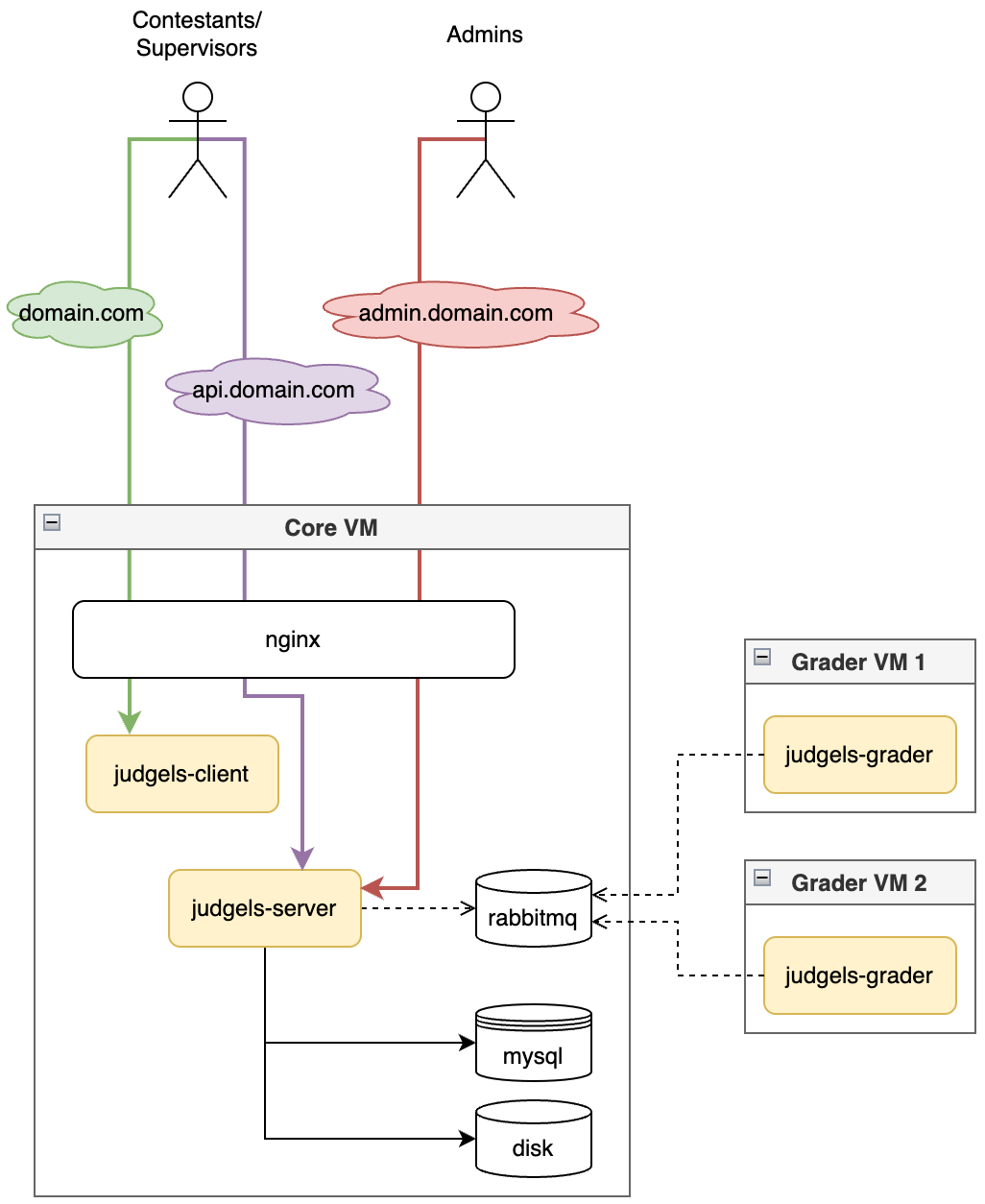Concepts
This page explains the required concepts for deploying a Judgels instance.
A. Judgels services
Judgels consists of 3 apps (services):
- Judgels client app: a React app serving the contestant web interface.
- Contestants access the contestant web interface to do the contest.
- Judgels server app: a Java app serving the admin web interface and the API server endpoints.
- Admins access the admin web interface to set up the problems and other administrative tasks.
- Contestant web browsers access the API server endpoints (via AJAX requests).
- Judgels grader app: a Java app grading contestant submissions.
In a Judgels deployment, we will run one client app, one server app, and multiple grader apps.
B. Data storage
The server app stores persistent data in the following places:
- Local disk, for user avatar and submission files.
- A MySQL database, for everything else.
C. Grading queue
The server and grader apps communicate with each other via a RabbitMQ queue. The simplified flow is as follows:
- The server app sends a grading request to a RabbitMQ queue.
- One grader app retrieves the grading request from the RabbitMQ queue.
- The grader app evaluates the submission in the grading request.
- The grader app sends the grading result to the RabbitMQ queue.
- One grader app retrieves the grading request from the RabbitMQ queue.
- The server app retrieves the grading result from the RabbitMQ queue.
D. Domains
To access the web interfaces, we typically need 3 domains:
- domain (e.g.
mycontest.org)- For the contestants to access the contestant web interface. This is the URL that we publish to the contestants.
- api.domain (e.g.
api.mycontest.org)- For the contestant web browsers to connect to the API server (via AJAX requests).
- admin.domain(e.g.
admin.mycontest.org)- For the admins to access the admin web interface.
Requests from contestants and admins are routed by Nginx.
E. (Virtual) machines
The apps need to be deployed in one or more VMs (virtual machines). We find that the following setup is sufficient for running a contest with ~ 100 contestants:
- 1 "core" VM (at least 4 GB RAM, 2 CPUs), running:
- MySQL database.
- Both Judgels client and server apps.
- Nginx, routing the requests from contestants and admins.
- RabbitMQ, for the server and grader apps to communicate with each other for grading requests/results.
- 1 or more "grader" VMs (at least 2 GB RAM, 2 CPUs), each running only a Judgels grader app.
F. Diagram
To sum up, a summary about the deployment architecture and the dependencies can be seen in the following diagram:
